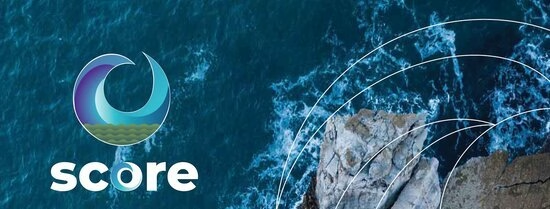As IHS highlights SCORE's 10 coastal city labs with a real-time travel blog, this interview dives deeper into the project itself. Meet Elena Marie Enseñado, Specialist in Nature-based Climate Change Adaptation Planning, part of the Urban Sustainability & Climate Change Resilience team at IHS. Her latest work is part of the SCORE Project.
Increasing climate resilience in Europe's coastal cities
The SCORE project started officially on July 1, 2021, and it will run until June 30, 2025. For four years, IHS staff will work on the SCORE project, which aims to increase climate resilience in European coastal cities. This is a very exciting project as we will work directly with 10 coastal city living labs (CCLL) in 7 different countries in Europe to address challenges related to sea-level rise, coastal erosion, and extreme weather events using an integrated solution of nature-based solutions and smart technologies.
IHS is leading Work Package 2, which is the coastal living lab design, implementation, and evaluation. We work together with NAIDER -as co-leader, the European Network of Living Labs or ENOLL, and ERINN Innovation. With that, I am the work package leader and principal investigator of Work Package 2. Within this package, we have worked together to develop the overall framework and methodology, including the evaluation strategy. (see materials from the webinar, on these topics).
With the framework and methodology as a basis, the approach is now being contextualized for each city. IHS colleagues Laura Quadros Aniche, Charmae Nercua, Indriany Lionggo, and Francesca Vanelli – together with colleagues from NAIDER and ENOLL- are facilitating workshops with the coastal city living labs teams and relevant stakeholders to know more about the CCLL needs, objectives, and visions for the future.
In addition, IHS also supports Work Package 7, which is the socio-economic assessment of adaptation strategies. Led by ENT, IHS – together with TERO and ENOLL – have finished a systematic literature review of socio-economic assessment methods that address adaptation strategies. We are now working on developing assessments that will be applied in the CCLLs to identify, assess, and select the most suitable adaptation strategy for implementation. These results will be shared via the website soon.
An innovative approach
The project combines new technologies, such as digital twin prototypes, GIS early warning support systems, citizen science, and low-cost sensing technologies, with adaptation strategies, including the ecosystem-based adaptation or nature-based solutions to improve climate change resilience. Further, developing these technologies and solutions in a co-creative way with different actors in the living labs is a new approach. For SCORE, we will test, implement, and evaluate this approach – and the lessons learned will be very important in developing and implementing interventions not just for the CCLLs but in other contexts.
Ten coastal cities with common challenges
Considering the coastal locations, the cities face common challenges in terms of hazards e.g. flooding, erosion, storm surges and impacts e.g. risk to tourism and damage to buildings and civil infrastructure. These coastal cities were chosen as partners during the proposal stage, and they have committed to be part of the project until the end. These CCLLs are frontrunners on specific themes or activities e.g. living lab experience, adaptation strategies and financial resilience, mapping, projections, and modelling; early warning systems and digital twin prototypes, and they can impart the lessons learned to other CCLLs.
Transferability of insights from European cities to developing countries' contexts
I am also conducting research on learning between and among cities on climate change mitigation and adaptation, and one of the aspects I am specifically looking at are the conditions necessary for learning. Two of these conditions are similarity e.g., geography, culture, organization and difference or diversity – which are polar opposites. Similarities provide a common ground and a foundation for building trust, but difference or diversity is also important as a source for conscious reflection. Certainly, European cities are different from countries in Asia, Africa, and Latin or North America. What is important is understanding context-specific characteristics and having this conscious reflection to make an informed decision.
How such large-scale projects come to life
SCORE is funded by the European Commission – Horizon 2020 programme – which means that the project team prepared a proposal for submission and evaluation. It was a two-stage submission process, meaning that we first prepared a short proposal that was evaluated before we moved on to the second stage, which is a longer proposal. Thankfully, we were able to pass both stages and were granted funding!
IHS joined the project consortium, which is led by the Institute of Technology Sligo or ITS. ITS consolidated a consortium of 28 institutional partners across 12 countries. These partners represent local and regional authorities, academia and research organizations, small and medium-sized enterprises, among others, that offer a wide range of skills – from social and environmental sciences to coastal management and smart sensing research.
ITS has already implemented similar projects before and had an idea for a project that would combine living labs, ecosystem-based approaches, and smart technologies. The project fits well with the work programme of the European Commission. The proposed methodology was also conceptually and technically sound as there is already experience from institutional partners and their related projects – but also pushing further the potential for new innovations. The Horizon 2020 programme, which runs from 2014 to 2020, is now replaced by Horizon Europe (2021-2027). To apply for such funding, it is always important to start early, build a consortium, and write a good proposal!

